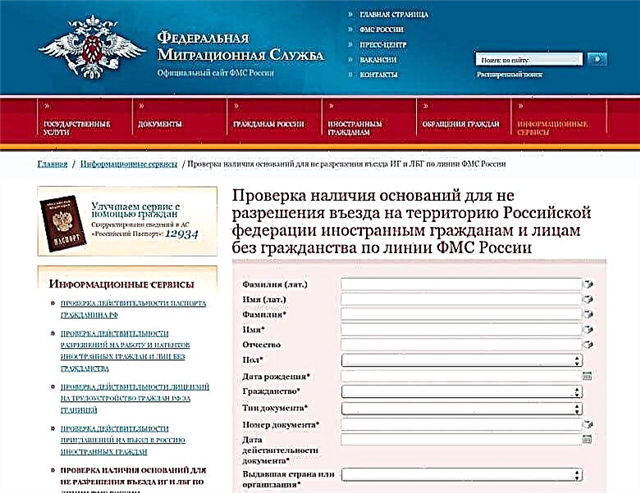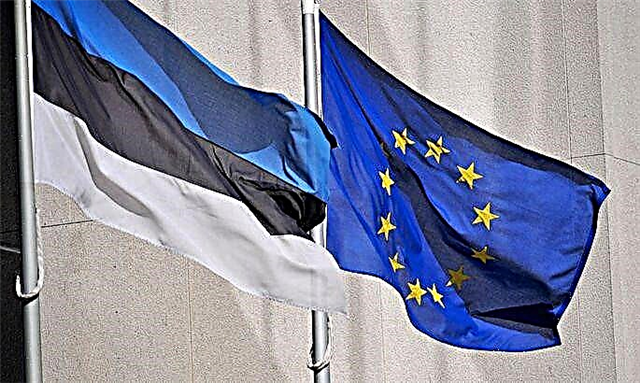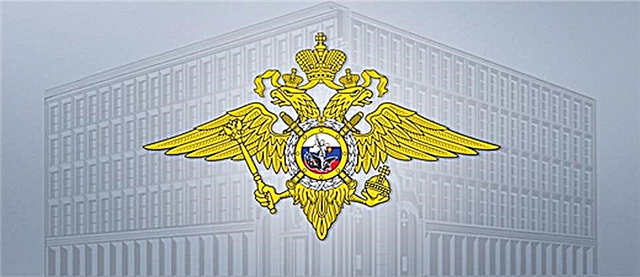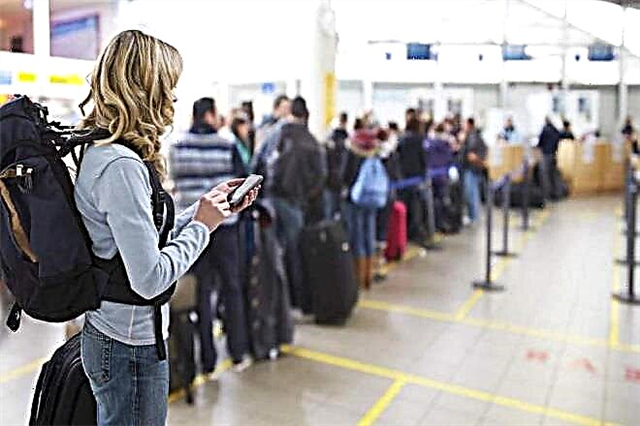Foreign citizens may be refused and banned from entering Russia. In the first case, the problem can be solved in 2-3 days. But in the second, you will have to go through several instances, starting with finding out the reasons for making such a decision.
Grounds for imposing sanctions
Most often, foreigners find out that they cannot cross the border already at passport control. Customs officers do not have information about the reasons for the ban, so it will not be possible to find out something on the spot.
All the grounds on which a foreign citizen (IG) have the right to refuse to cross the Russian border are indicated in the Federal Law of 15.08.1996 No. 114 "On the procedure for leaving the Russian Federation and entering the Russian Federation."
The list looks like this:
- If IS was subjected to the procedure of expulsion from Russia to the state from which it arrived, then within 36 months it will not be able to cross the border with the Russian Federation;
- Willful violation of the law;
- Current criminal record;
- Lack of documents required for passport control;
- Submission of forged documents;
- Arrears in payment of fines;
- Problems with paying taxes;
- Refusal to pay the costs of deportation from the country;
- Non-compliance with the migration regime;
- Deportation during the last visit to the country.
If a foreigner plans to initiate the procedure for lifting the ban, then he must understand that some reasons give a high probability of obtaining a positive result. For example, an incomplete package of papers for entry is not a serious violation of the law. In situations where the migration regime has been violated, or the foreigner has a criminal record, it will be much more difficult to resolve the issue.
How to find out the reason
The easiest way to check for a ban and find out its reasons is online. You can leave a request on the official resource of the Main Directorate for Migration Issues of the Ministry of Internal Affairs of Russia.

The request is created electronically in a few minutes. In the columns of the application, information is entered in Russian. Name and surname must be duplicated in English. After sending the application, the answer comes in a matter of seconds.
On the main page of the resource it is indicated that the information is for reference purposes, therefore it is recommended to make an official request to the migration services.
The application is written by hand in any form, but indicating the personal data of the foreigner (full name, gender, date of birth, passport number, and so on). The answer comes to the addressee within 10 days. Depending on the reason for the ban, specified in it, you need to develop a plan for further action.
Which authority can impose sanctions
You May Also Like
In fact, the list of departments that are authorized to issue a ban is quite large. Most often, such sanctions are imposed:
- FMS - violations of the migration regime become the cause;
- Rospotrebnadzor - the presence of dangerous viral diseases becomes the reason for the prohibition (HIV, syphilis, and so on);
- Ministry of Internal Affairs, FSB, SVR - the list of reasons included in the sphere of interests of these bodies is wide (most often it is terrorism, connections with terrorists, espionage);
- Rosfinmonitoring - the reason for the imposition of sanctions is the conduct of illegal business activities;
- FMBA;
- FSKN.
The listed departments can impose sanctions on their own or through the courts. This nuance is important for starting the ban removal procedure.
Legal ways to resolve the issue
It is very difficult to lift the imposed sanctions. This procedure lasts at least a month and is carried out in one of the following ways.
Administratively
In order to lift the ban, a foreigner needs to hire a lawyer. Since the process itself will not be easy, it is necessary to inquire about the experience of the lawyer in such cases. The lawyer will represent the interests of his client in all instances where access to a foreigner is closed.
If the ban was imposed by the FMS, then there are only 2 grounds for lifting it - a mistake and the presence in Russia of close relatives with the status of "Citizen of the Russian Federation".
Close relatives include:
- Husband wife;
- Children;
- Parents.
In this case, the head of the FMS can lift the sanctions. Through him, the issue is resolved even when the actions of the Russian authorities were illegal or were erroneous.
 The Migration Service will not independently make inquiries and collect information about a foreigner. Therefore, before contacting the FMS, you need to carefully prepare a package of documents: a passport, confirmation of kinship or other papers certifying the error that occurred. But even in this case, the migration services can leave their decision unchanged.
The Migration Service will not independently make inquiries and collect information about a foreigner. Therefore, before contacting the FMS, you need to carefully prepare a package of documents: a passport, confirmation of kinship or other papers certifying the error that occurred. But even in this case, the migration services can leave their decision unchanged.
If a ban is issued by the Main Directorate of Internal Affairs of the Ministry of Internal Affairs, you can try to remove it by administrative procedure. But first it is important to find out whether the department itself imposed sanctions, or it was done through the courts. You can contact the Ministry of Internal Affairs only if it independently made a decision on the ban.
Judicially
You May Also Like
If the sanctions were imposed by the FSB, the Ministry of Justice and other departments, then the situation can only be changed through the courts.
ISs with dependent relatives living in Russia are more likely to get a positive result.
They must correspond to one of the statuses below:
- Citizen of the Russian Federation;
- Residence permit.
To go to court, a lawyer must prepare a number of documents for himself:
- Power of attorney (certified by a notary);
- A copy of the diploma.
The following package of papers is prepared for a foreign citizen:
- Statement of claim (the rules are specified in the Code of Administrative Offenses of the Russian Federation);
- Work patent;
- Residence permit (you need to take into account that the document can be canceled when a ban is issued);
- Confirmation of living together with a dependent relative;
- Confirmation of other grounds accepted by the court for lifting the sanctions (for example, training in an accredited educational institution or the need to undergo treatment in Russia).

Procedure price
The services of lawyers in such cases are quite expensive. The cost depends on which withdrawal method is chosen:
- The administrative procedure will cost a foreigner from 5000 rubles;
- Doing business in court is already from 10,000 rubles.
IS must pay a state fee before filing a lawsuit. It is 300 rubles.
Features and nuances of lifting sanctions
To lift the ban, it is necessary to take into account the nuances of the procedure inherent in each department.
GUVM Ministry of Internal Affairs or its regional departments
At first glance, the procedure for initiating the lifting of sanctions at the Main Directorate of Internal Affairs of the Ministry of Internal Affairs looks simple:
- Contacting the territorial department of the Ministry of Internal Affairs;
- Filling out an application (it specifies the grounds for withdrawal);
- Supplementing the application with documents (they depend on the reason for the imposition of the sanctions, but necessarily include an identity card);
- Waiting for a decision.
Foreigners have 3 months to resolve the issue of entering Russia. After that, no structure will accept the application for consideration.
It is important for IS to select a regional branch of the security structure for its appeal. It is it, and not the head department, that makes the decision on the ban on entry. If the papers are submitted specifically to the Main Directorate of Internal Affairs of the Ministry of Internal Affairs, then the review process will be longer and last for several months.
Rospotrebnadzor
This department can impose sanctions on a foreigner without first submitting documents to the court, but Rospotrebnadzor has no right to lift the ban on its own. Therefore, after finding out the reason that prompted the department to impose sanctions, the IG should begin preparing documents for the court.
Court
The court can consider a case from 3 to 6 months. In rare cases, the issue is resolved faster.But a foreigner must take into account that a priority has been established for accepting a claim in such cases, and it is scheduled for several months in advance. Therefore, any delay in the preparation of documents may result in exceeding the three-month deadline for appeal.

If the IG collected the papers, but they did not manage to go into court proceedings within 3 months, the court will refuse to consider the case. In this case, the decision to impose sanctions will remain unchanged.
FSB
The ban imposed by the FSB is lifted only in court. This structure does not provide foreigners with any information about the grounds that led to the refusal of entry. Therefore, it makes no sense to make an official request to the FSB. This will lead to the loss of precious time for a foreigner.
FMS
This department imposes the most sanctions on foreigners. It is authorized to remove them on its own.
The procedure for lifting the ban is as follows:
- Send an official request to the migration service with a request to indicate the reason for the imposed sanctions;
- Registration of a complaint addressed to the head of the FMS (if an error or illegal actions are detected);
- Visit to the migration service;
- Provision of a package of documents (response letter to the request, identity card, confirmation of relationship with residents of the Russian Federation or an error made by the FMS employees);
- Waiting for an answer.
You need to be prepared for the fact that the department administratively removes only 1-2% from all prohibitions.

Administration of the President of the Russian Federation and the Commissioner for Human Rights in the Russian Federation
Many foreigners believe that in order to lift the ban, one must immediately contact the listed authorities. But in fact, both departments will accept a statement from IS only after all attempts have been made to lift the sanctions administratively and through the courts. Otherwise, the application will be redirected to the structure that issued the ban. And the time given for the appeal will be lost.
Russian authorities may prohibit a foreigner from entering Russia for a period of 5 to 10 years. Most often, such actions are based on weighty grounds, and the situation needs to be resolved only by legal methods. Some foreign nationals are trying to circumvent the ban and enter the country with forged documents. Such actions could entail a lifelong ban on crossing the Russian border.











